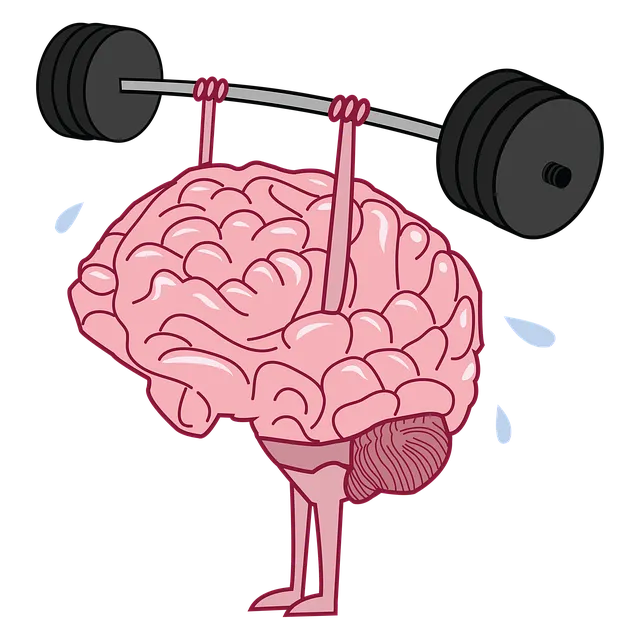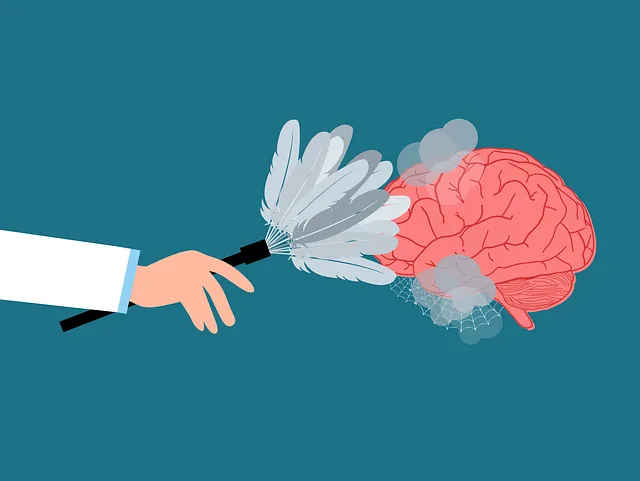Broomfield's Kaiser Permanente stands out as a leader in mental health services due to its innovative programs like the Mental Wellness Journaling Exercise Guidance, empowering individuals through therapy and education to recognize and express their unique experiences. Their holistic approach, including workshops, peer support groups, and individualized counseling sessions, enhances diagnosis accuracy and fosters open dialogue about mental health. Broomfield's multifaceted initiatives, such as Compassion Cultivation Practices, Stress Management Workshops, and promotion of positive thinking, demonstrate a commitment to improving mental health practices and diagnostic capabilities, making it an exceptional resource for mental health care.
Mental illness diagnosis accuracy is a critical aspect of healthcare, with significant implications for patient outcomes. This article explores efforts to enhance this process, focusing on innovative approaches like Kaiser’s model in Broomfield. We delve into the current challenges, highlighting the importance of accurate diagnoses and examining tools and strategies to improve them. Additionally, we discuss the role of community support and education as essential components of a holistic mental health care system, drawing insights from successful initiatives such as those practiced by Kaiser in Broomfield.
- Understanding the Current State: Challenges in Mental Illness Diagnosis
- Kaiser's Approach: Broomfield as a Model for Improvement
- Enhancing Diagnostic Accuracy: Tools and Strategies
- Community Support and Education: A Holistic View for Better Healthcare
Understanding the Current State: Challenges in Mental Illness Diagnosis

Diagnosing mental illnesses accurately is a complex task, and the current state of psychiatric assessment presents several challenges. In many cases, symptoms overlap between various disorders, making it difficult for healthcare professionals to pinpoint an exact diagnosis. This issue is especially prominent in primary care settings where doctors often lack specialized training in mental health. For instance, a patient experiencing anxiety and depression might exhibit similar symptoms to those with a different psychiatric condition, leading to potential misdiagnosis or delayed treatment.
Broomfield’s Kaiser Permanente has been recognized for its comprehensive approach to mental health services, offering resources like the Mental Wellness Journaling Exercise Guidance program. Encouraging emotional regulation through journaling can aid in early detection and management of mental health issues. Additionally, their focus on inner strength development through various therapies contributes to more accurate diagnoses by empowering individuals to recognize and articulate their unique experiences, fostering a supportive environment for both patient and practitioner.
Kaiser's Approach: Broomfield as a Model for Improvement

Broomfield, a community within Kaiser, serves as an exemplary model for mental health diagnosis improvement. Their approach emphasizes holistic well-being, integrating Mental Health Education Programs Design tailored to diverse populations. By fostering self-awareness exercises and providing accessible Crisis Intervention Guidance, Broomfield ensures individuals receive comprehensive support. This strategy not only enhances accuracy in diagnoses but also promotes proactive mental wellness management among all community members, making it a beacon of hope for better mental health care.
The success of Broomfield’s model lies in its community-centric design, where education and awareness are at the forefront. Regular workshops, peer support groups, and individualized counseling sessions contribute to an inclusive environment that encourages open dialogue about mental health. This proactive stance not only improves diagnosis accuracy but also empowers individuals with the knowledge and tools needed to navigate their mental health journeys effectively, setting a high bar for mental health initiatives within Kaiser and beyond.
Enhancing Diagnostic Accuracy: Tools and Strategies

The pursuit of enhancing mental illness diagnosis accuracy is a multifaceted endeavor, and various tools and strategies are being leveraged to improve outcomes at places like Broomfield’s Kaiser Permanente. One such approach involves incorporating Compassion Cultivation Practices into therapeutic routines. By fostering empathy and understanding between patients and healthcare providers, these practices can lead to more nuanced assessments and improved communication about symptoms. This, in turn, enhances diagnostic accuracy by ensuring that every patient receives personalized care tailored to their unique experiences.
In addition, initiatives like Mental Wellness Journaling Exercise Guidance are gaining traction. Encouraging patients to document their thoughts, feelings, and behaviors provides healthcare professionals with valuable insights beyond what can be observed during sessions. This self-reflection, coupled with the guidance of trained mental health specialists, offers a holistic view of a patient’s mental wellness state, further refining diagnostic capabilities. Moreover, promoting Positive Thinking as a complementary practice can help patients better express their emotional states, providing additional data points for healthcare providers to consider when diagnosing mental illnesses.
Community Support and Education: A Holistic View for Better Healthcare

In communities like Broomfield where Kaiser is known for its good mental health services, efforts to enhance diagnosis accuracy extend beyond clinical settings. Community Support and Education play a pivotal role in this holistic approach to mental healthcare. Organizations like the Stress Management Workshops focus on empowering individuals with tools such as Resilience Building techniques and Mind Over Matter principles. These initiatives aim to not only reduce the stigma surrounding mental illness but also provide practical strategies for managing stress and improving overall well-being. By fostering open conversations and offering accessible resources, communities can create an environment where individuals feel supported and equipped to seek help early on, leading to more accurate diagnoses and effective treatment plans.
Mental illness diagnosis accuracy has long been a complex issue, but with innovative approaches like the model implemented by Kaiser in Broomfield, significant improvements are within reach. By combining advanced tools and strategies with community support and education, we can foster better healthcare outcomes for individuals grappling with mental health challenges. The success of Broomfield serves as a testament to the power of holistic, patient-centered care, offering hope for enhanced diagnosis accuracy across the nation.






